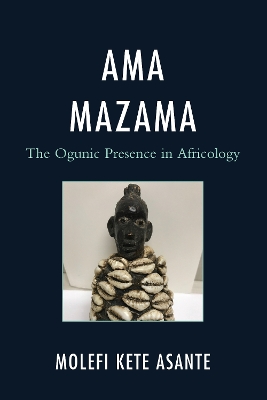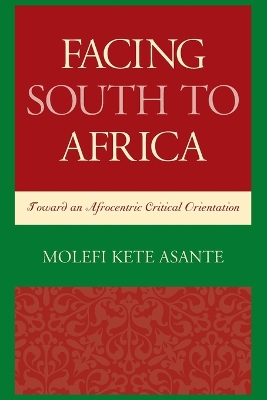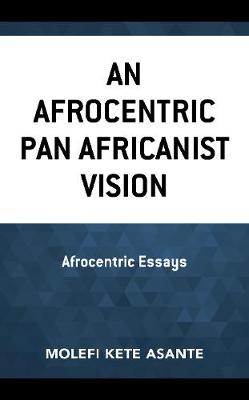Critical Africana Studies
3 total works
Ama Mazama: The Ogunic Presence in Africology is a critical analysis of the ideas of Ama Mazama, a prominent and leading female theorist in Africology and African American Studies. Molefe Asante studies the creative and productive power of Mazama’s intellectual work as it emerges from the personal wrestling with spiritual elements of consciousness as well as Mazama’s attention to ancestral and perhaps epigenetic relationships to African spirituality in the making of theory and practice. Painting a picture of an activist intellectual concerned as much with mental as well as spiritual liberation, Asante demonstrates how and why Ama Mazama has evolved into one of the most popular Africologists in the field.
Facing South to Africa is a bold synthesis of the ideas that have made Afrocentric theorists the leading voices of the African renaissance. Written from the vantage point of the philosophical and political discourse that emerged over the past twenty-five years, this is a highly readable and accessible introduction to African social and cultural criticism. Molefi Kete Asante engages in the practice of critical thinking by raising fundamental questions about how Africans view themselves and the world. Tackling the themes of culture, education, social sciences, the university, politics, African unity, and the prospects for peace in Africa, Facing South to Africa is a fresh, daring, and popularizing synthesis of the best critical thought on the issues of modern knowledge. Asante’s plan is to reorient our thinking on Africa by asking questions of Africa and Africans rather than imposing preconceived, external ideas on African issues.
In An Afrocentric Pan Africanist Vision: Afrocentric Essays, Molefi Kete Asante, engages the age-old debate on Pan Africanism by providing an innovative orientation to the established discourse developed during the twentieth century. Asante opens an interrogation of the Padmorian tradition of a socialist Pan Africanism by suggesting that a deeper entry into the histories and narratives of the literary, economic, social, and spiritual values of the thousands of African societies scattered throughout the world could sustain a different agency analysis of Pan Africanism without grafting an external idea on the unity of Africa. Using his vast knowledge of the history of Africa, Asante suggests that the African renaissance cannot take place unless there is a commitment to creating an African community conscious of its own myths, origins, and economic, cultural, and philosophical traditions.


